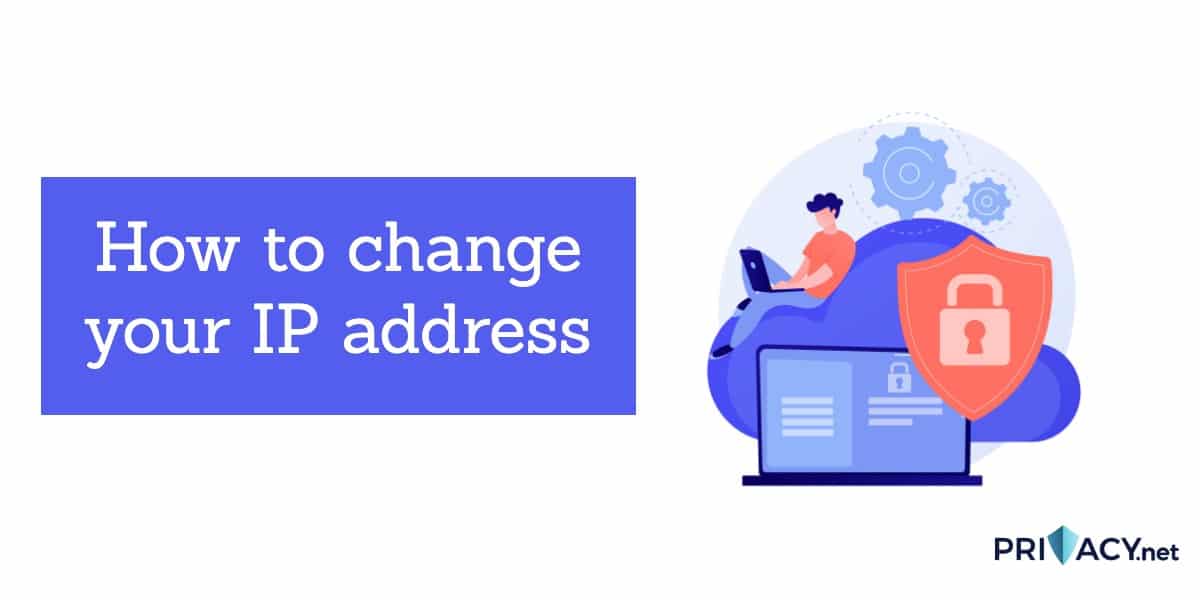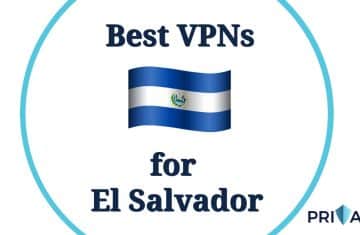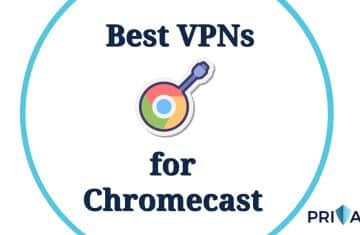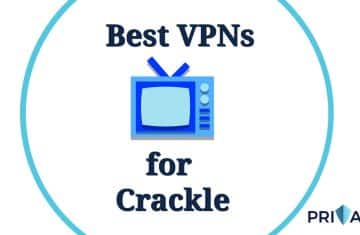You may want to change your IP address to refresh your online security or to access restricted content from another country.
You can find your IP address using your operating system or one of many websites. You can change your IP address in your operating system settings, by using a proxy, or by using a VPN. If you aren’t comfortable messing with settings, a VPN is the easiest and safest option. It also gives you more versatility.
IP is an acronym for Internet Protocol. Two versions of IP currently coexist – IPv4 and IPv6. Eventually, IPv6 will replace IPv4, but that is very slowly happening. That is partly because the two versions are incompatible with each other. Most websites use IPv4.
Every device connected to the internet has a unique IP address. IP addresses are analogous to home addresses, as both identify a physical location. If you have a home WiFi or wired network, each connected device has its own local IP address, but they share the same public IP address.
Should you change your IP address?
People rarely need to change their IP addresses, but you may want to do so. These are common reasons for wanting to change an IP address:
- Government censorship: North Korea, China, UAE, and other repressive governments do not allow their citizens to have open access to the internet. You may be able to get around government blocks by changing your IP address. Using a VPN is the only solution for this purpose, but only a minority of VPNs can overcome government blocking.
- Geographic restrictions on streaming media services: These services license content from copyright holders. Some of that content is restricted to citizens of specific countries.
- ISP restrictions: ISPs don’t care if you use their service to illegally download movies, music, games, or ebooks, but the copyright holders do care. Expensive lawsuits have forced ISPs to meet the demands of content providers by cracking down on illegal file sharing. Some of them will warn you, cancel your service, or report you to the major industry associations if you download popular content through torrenting, in particular.
- Website blocks: You may be locked out of certain websites for legitimate or illegitimate reasons (e.g. your username or password didn’t work in three tries).
- Travel: If you are away from your home country, you will be unable to access certain websites and streaming services because those sites are seeing a foreign IP address.
- Tracking: DoubleClick (Google), Apple, Quantserve (Quantcast), Facebook, Microsoft, TikTok, and other advertising industry businesses aren’t your parents, but if you go anywhere on the internet, they want to know about it. If you use any of their online services (browsers, email, apps, etc.), they track you. Some secure browsers and some VPNs are capable of blocking trackers.
How to change your public IP address: 7 methods
1. Sign up for a VPN service
Fast, reliable, and secure VPNs are not free, but they represent the most effective and simplest means of changing your IP address. Many of the best VPNs only cost two or three dollars a month if you are willing to commit to two or three years of service. The best VPNs provide a solution for all the reasons why people want to change their IP addresses.
By routing encrypted data to servers throughout the world, a VPN hides your true location from websites. Your IP address appears to be the address of your VPN provider’s server in the location you chose, instead of the address for your home or remote location. The best VPNs are listed below.
To change your IP address with a VPN:
- Choose the VPN that best meets your needs and budget. NordVPN is the best all-around choice.
- Register for the service.
- Download the apps for your devices (Windows, Android, etc.)
- Open the app. In most apps, the first screen you see will let you choose a server. The best VPNs have many servers in many locations. You can pick a server that is anywhere in the world, but the fastest server will usually be the one closest to you. If you want to stream content that is only available for people in France, pick a server in France. Any server you pick will have its own IP address, so you are using that address instead of your own.
- Each time you get online, you can pick whichever server you want. Many apps give you the choice of picking the fastest server or choosing a country, state, or city from a list.
2. Change your IP address in your system settings
In Windows 10:
- Open settings.
- Click Network & Internet.
- Click Change adapter options.
- Double-click on your active connection.
- Click Properties.
- Click Internet Protocol Version 4 (TCP/IPv4). Click Properties.
- The default is Obtain an IP address automatically. Use that unless you understand the procedure for manually changing it.
- Click OK.
In macOS:
- Open System Preferences.
- Click Network.
- Click on the network you use. Click Advanced.
- Click the TCP/IP tab.
- The default is Automatically. Use that unless you understand the procedure for manually changing it.
- Click OK.
You can also change the settings of your mobile devices, but the instructions will vary depending on the brand of your device and sometimes by model.
3. Turn off and unplug your modem (it may not have a power switch)
This is the easiest method, but it may not work. It’s also inconvenient. If you leave the modem unplugged long enough, your ISP may assign you a new IP address. You may have to leave it unplugged overnight, and that is still not a guarantee it will work.
4. Ask your ISP
Your ISP may be willing to give you a new IP address, and may not charge you for it. If you do get a new IP address, you may have to manually enter it in your system settings using the steps shown above.
5. Use a web proxy
Like a VPN, a proxy service will let you use an IP address assigned to another location. Some proxies are free. Proxies lack the security and capabilities of a VPN. Most of them do not encrypt data or give you anonymity from your ISP. Most VPNs will let you upload and download torrents; a proxy will not hide that from your ISP’s virtual eyes. Proxies only work in web browsers.
6. Use Tor
Tor is an acronym for The Onion Router. It is a free, legal, featureless web browser. Tor is secure. It uses encryption and routes all web traffic through its own network. The traffic travels through multiple servers, which increases anonymity… and slowing. Tor is very slow. It opens slowly and every web page loads slowly.
Unless you are very patient, Tor is only suitable for occasional usage. If you want to engage in a confidential search, Tor is more secure and private than private windows in other browsers. However, Tor has other drawbacks in addition to sluggishness. You will encounter a lot of CAPTCHAs.
Also, Tor is closely associated with the dark web. While your ISP can’t track the sites you visit while using Tor, it can tell that you are connected to the Tor network. You have nothing to lose by trying Tor. It is safer than gambling on the trustworthiness of a free VPN or a free proxy.
7. Change networks
This method only works for mobile devices. A different WiFi network will have a different IP address. Depending on where you are and who you know, you may only be able to connect to one network. If you don’t have a choice, you can switch from WiFi to your phone’s internet connection. Granted, that’s not going to be fast enough for streaming media.
The best VPNs to change your IP address
Here is a list of the top VPN providers on the market that I recommend using.
My best VPNs for changing your IP address:
- NordVPN: The best VPN for changing your IP address. Very fast and vast network that accesses streaming services and repressive governments. Great security features and extras. Has a risk-free 30-day money-back guarantee.
- Surfshark: Best budget premium VPN. Accesses all major streaming media services and countries like China. Blocks ads and malware.
- ExpressVPN: Has servers in almost 100 countries, is very fast, and great at accessing streaming services. Prices are higher than average.
- CyberGhost: A fast VPN with a huge network. Good for streaming, but not at navigating restrictive governments. Inexpensive. Easy to use.
- PrivateVPN: Small network, but very fast and cheap service. Exceptional customer satisfaction. Perfect for torrenting. Works in China.
- IPVanish: Will provide support by phone. Very fast, but not great for accessing streaming services or countries. Solid security and privacy.
- Private Internet Access: A privacy-focused VPN with servers in over 80 countries. Secure and reliable.
- AtlasVPN: Works with all major streaming services. Very inexpensive. Great security and privacy capabilities. Customer relations are iffy.
How to change your local IP address
If you have a wired or WiFi network, you can change your private IP address from your router’s administrative panel or in your computer settings.
In Windows:
- Open Command Prompt. You may have to right-click and open as administrator.
- Type or paste from here: ipconfig /release.
- Type or paste from here: ipconfig / renew.
You may need to restart your computer for the change to take effect.
On a Mac:
- Open System Preferences from the Apple menu.
- Select Network.
- Highlight the network that you’re connected to
- Select your network in the left panel.
- Click Advanced.
- If your network is wired, you are in the TCP/IP tab heading. If you have a wifi network, select the TCP/IP tab.
- Click Renew DHCP Lease
- Click OK.
- Exit System Preferences.
You may need to restart your computer for the change to take effect.
Changing IP address FAQs
Is it legal to change my IP address?
Yes, it is legal. All of the methods described in this article are legal. Some of the reasons people have for wanting to change their IP addresses are for illegal activities. Some countries ban open access to the worldwide web. Most countries ban sharing copyrighted material. Some countries or localities don’t allow online gambling, watching porn, unofficial political points-of-view, religious content that conflicts with the official religion, or even freedom of speech. Know your own government!
Note: Nothing I have said in this article should be taken as legal advice.
Why aren’t you recommending any free VPNs?
Free VPNs don’t offer solutions for most of the reasons people have (as listed above) for wanting to change their IP address. The companies that give you free VPN service have something to gain financially in return.
In the best cases, free VPNs are marketing strategies designed to entice users to upgrade to commercial plans from the same companies. You get lots of upselling along with slow service and disabled capabilities (e.g. no streaming, no malware blocking, limited bandwidth). Commercial VPNs have to be fast to retain their customers. Free VPNs allow their servers to be overloaded with too many users.
In the worst cases, free VPNs compromise your security. They may leak your IP address. Some track you and sell your browsing history. Some track you and serve targeted ads. Some free VPNs even inflict your devices with malware.
The best free VPNs are very unlikely to work in China or other countries that block VPNs and unlikely to be fast enough for high-resolution video streaming. Torrenting will be very slow, if the VPN allows it.
Free proxies are less likely to be dangerous than free VPNs, but choose one with research and care if you settle on that strategy.
How do you choose a good VPN?
VPNs are in the software-as-a-service industry. Use the same considerations you would when choosing any service provider: check professional and user reviews, compare prices, and learn a little about the technical considerations. Here are the basics:
- Speed matters: A VPN is a middleman. Using one will cause some amount of slowing compared with a direct connection to the internet. The best VPNs have negligible speed loss. Speed is particularly important for streaming audio and video and for torrenting.
- Security and privacy: The best VPNs have many security features. Look for 256-bit encryption, the WireGuard connection protocol, kill switches in all apps, private DNS, split-tunneling, and leak protection. Bonus features may include malware, ad, and tracker blocking; obfuscated servers; and extra transmission protection. For privacy, a no-logs policy with no hedging is essential. That means your VPN doesn’t record anything about your usage.
- Unblocking ability: Streaming services try to prevent VPN users from accessing them, so the ability to overcome those blocks is necessary if you want to watch location-limited video. If you use Hulu, Disney+, or another popular service, make sure the VPN you choose can unblock it. The ability to unblock governments is essential if you are in China or another country with a repressive government.
- Server locations: Bigger networks are more reliable and more likely to be fast. They give you a better likelihood of connecting when you travel. If you are far from a VPNs nearest server, your connection will be slower. Look for lots of servers in lots of places.
- Value: VPNs constantly run promotions. Moving-target prices are difficult to compare. Price is part of the value, but what you get for that price matters more.
- Customer relations: Tech support, customer service, responsiveness, good websites, and communication methods are all a big deal. You must be able to get the help you need and get your problems solved. The VPN’s apps should be easy to use (most are). Every reputable VPN will give you a money-back guarantee.
Will changing my IP address force me to solve CAPTCHAs?
It may. Sites that previously recognized you no longer will. That’s good and bad. People who use VPNs and proxies are sharing servers with other users. That’s also good and bad. The good part is that websites can’t distinguish you from other people using the same server. You have strong anonymity. The bad part is that heavy traffic from a single IP address tells websites that the traffic is probably coming from a VPN, proxy server, or something like airport WiFi. Many of the websites that use CAPTCHAs just want to verify that you are a person and not a bot.
The people who invented CAPTCHAs, pop-up ads, and pop-up cookie notices should be exiled to North Korea. Why should anyone have to solve a CAPTCHA to apply for a job? A lot of life’s annoyances can be found online. They’re a modest price for all the benefits of the internet.
Can I hide my IP address from my ISP?
No, you can fool websites, but your ISP will always know your real IP address. Your real IP address comes from your ISP, even if you change it using one of the methods described above.
If you use an encrypted method of hiding your IP address, such as using Tor or a VPN, your ISP will not be able to track you or know which websites you visited.
Contents [hide]
- Should you change your IP address?
- How to change your public IP address: 7 methods
- The best VPNs to change your IP address
- How to change your local IP address
- Changing IP address FAQs
- Is it legal to change my IP address?
- Why aren’t you recommending any free VPNs?
- How do you choose a good VPN?
- Will changing my IP address force me to solve CAPTCHAs?
- Can I hide my IP address from my ISP?





